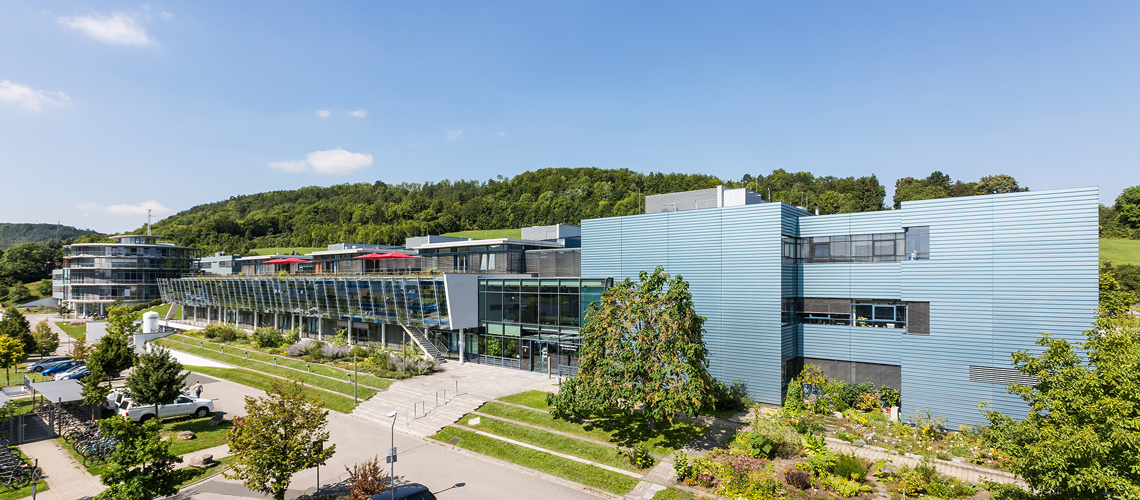The Max Planck Institute for Biogeochemistry (MPI-BGC) in Jena is dedicated to interdisciplinary fundamental research in the field of Earth system sciences with a focus on climate and ecosystems. The internationally renowned institute, which currently employs around 250 people, celebrated its 25th anniversary in 2022. Jena is known for high-tech industry, internationally renowned research institutions and a modern university, but it also has a beautiful natural setting in the green Saale valley with steep limestone slopes. The city of Jena has an active student scene and a diverse cultural life. For the department of Biogeochemical Signals we are looking for a Postdoctoral specialist (m/f/d) on atmospheric inverse modeling for high-resolution regional simulations in full time, 3 years limited.
Background and position description
High latitude ecosystems play a pivotal role in the global carbon cycle. Future climate change threatens to destabilize enormous carbon reservoirs stored currently in northern permafrost soils, with the potential to trigger strong feedback processes between climate and carbon cycle that further amplify climate change. Still, large knowledge gaps remain regarding environmental conditions, and mechanisms, that control the carbon budgets of high latitude ecosystems. A particular gap exists for assessing the exchange budgets of carbon (CO2 and CH4) at scales ranging between a few km to several 10s of km within highly structured Arctic landscapes affected by degradation processes. Landscape disturbances and non-linear change processes that may dominate the fluxes at these scales are too variable to be adequately represented by sparse in-situ observational sites, yet too finely resolved for most remote sensing products, or regional to global scale atmospheric inversions.
We are seeking a postdoctoral specialist (m/f/d) with experience in atmospheric inverse modeling to constrain land-atmosphere exchange fluxes of carbon at scales ranging from landscape (few km) to regional (few 10s – 100s of km). This new position will be closely linked to ongoing research within our group focusing on large-eddy simulations and atmospheric inversions at global to pan-Arctic scales, resp. The successful candidate (m/f/d) will fill a key position within the ERC-synergy project Q-Arctic, closely interacting with a large network of international project partners. The position will be embedded within an interdisciplinary research team that is conducting experimental, observational and modelling studies focusing on Arctic carbon cycle processes under global climate change.
Your tasks
- Combine atmospheric boundary layer modeling at very high spatial resolution with inverse modeling concepts to simulate land-atmosphere exchange fluxes at local to landscape scales. This should include, but is not restricted to, LES modeling and linking to global inversion schemes already used by our group.
- Exploit multi-disciplinary data sources to inform landscape scale inversions over selected boreal and Arctic domains, including e.g. surface-based and airborne observations from recent monitoring campaigns in NW Canada, isotope datasets, or satellite retrievals.
- Explore the connection between land cover composition, spatial structure of landscape elements, and typical length scale of variability in a heterogeneous Arctic landscape, with net carbon exchange budgets.
- Conduct atmospheric inversions to evaluate the performance of upgraded biosphere process models for simulation of Arctic carbon fluxes at very high spatial resolution, provided by project partners. The interpretation of process model results will be conducted jointly with project team colleagues contributing modeling results and in situ measurements.
Your profile
- Higher education degree (PhD) in atmospheric or natural sciences (e.g. meteorology, geo-ecology or other geo-science, or environmental physics)
- Experience in studying surface-atmosphere exchange processes with atmospheric approaches is a prerequisite
- Experience in one or several of the following disciplines is expected: atmospheric transport modeling, boundary layer meteorology, observation and interpretation of time series of greenhouse gas mixing ratios, and inverse optimization techniques
- Solid experience in scientific programming is essential
- Demonstrated insights into Arctic ecology or carbon cycle science are considered beneficial
- We seek a flexible and proactive person (m/f/d) who is able to work both independently as well as in a larger team
- Very good written and spoken English is essential
Our offer
This is a full-time post-doctoral position to be filled from 01.10.23, but starting not later than 01.04.24, with current funding guaranteed for a duration of 36 months. Part-time work is generally possible. The position will be evaluated and graded following the collective agreement according to TVöD Bund; in addition, we will provide a pension plan based on the public service (VBL).
The Max Planck Society (MPS) strives for gender equality and diversity. The MPS aims to increase the proportion of women in areas where they are underrepresented. Women are therefore explicitly encouraged to apply. We welcome applications from all fields. The Max Planck Society has set itself the goal of employing more severely disabled people. Applications from severely disabled persons are expressly encouraged.
Your application
For more information about this position, please contact Dr. Mathias Göckede mgoeck@bgc-jena.mpg.de. Are you interested? Please send us your application with cover letter, curriculum vitae as well as names and contact information of two references summarised in a PDF file (max. 10 MB) by July 26, 2023, quoting the reference number 10/2023 by e-mail to bewerbung@bgc-jena.mpg.de or to the
Max-Planck-Institut für Biogeochemie
Personalbüro: Kennwort “Wissenschaftlicher Mitarbeiter/PostDoc”
Hans-Knöll-Straße 10
07745 Jena
Deutschland
We kindly ask you not to submit copies of your application documents only, as your documents will be destroyed in accordance with data protection regulations after completion of the application procedure. We look forward to receiving your application!
